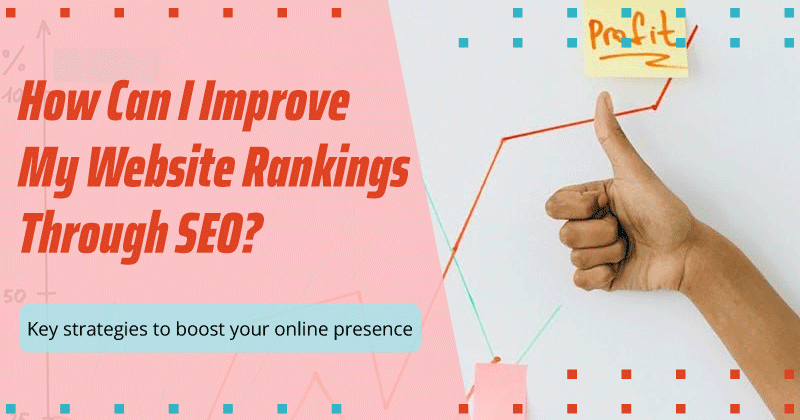Where We’re Going, We Don’t Need Page Numbers: Google & Infinite Scrolling
Google seems to be in constant flux with all the changes they’ve made in the past month. We’ve witnessed the introduction of Google+ and all the fanfare that came with it. Streamlined changes were made to the Google Search interface. Gmail has a new preview pane. Google News added badges and editor’s picks, and it’s hard to ignore those click-inducing +1 buttons. To say that when it rains, it pours, is an understatement.
 |
There is something else that’s pending implementation. It’s not a new idea. In fact, Facebook, Twitter and Bing currently have it, but the major players aren’t planning to use it the way Google will.
If history teaches us one thing about Google, it’s that they can’t resist taking one idea and applying it to everything else.
Plainly stated, Looks like Google is currently testing a sticky bar and infinite scrolling feature for its search engine.
Imagine being able to scroll through an “infinite” number of results without reaching a physical end to a page. Bask in that for a moment, then consider what effect that will have on user experience and search behaviors. How will search engine optimization cope with a change of this magnitude? What are the implications of a physically changing search landscape where relevance is subjective?
The infinite scroll poses an unprecedented change to the interface. Even more daunting is the idea that infinite scrolling could have an effect on user behavior in a prolific way. We are entering a world where people will click beyond the first 10 results, not just focus on the first three organic. The only constant things that remains during the infinite scroll are a sticky search bar and PPC ads, which will remain immobile on the page.
Fashionably Late: Google Isn’t the First to Arrive, but Could Be the Most Popular
Like I said, this is not new; Google already has infinite scrolling in the image vertical search. Results are limited to 1,000, but who’s counting? Page numbers appear perhaps to give some sense of grounding. I find myself thinking, these are the images that would appear on page two, if there was one. That thought is a definitive departure from, “this is the second page of images.” Who would have thought that pagination, in a Web-sense, would be relegated to the past tense.
Aside from Google, Bing also uses the feature for their image search and the results operate much the same. Similarly, Facebook and Twitter also implemented infinite scrolling to give the appearance of an endless stream of status updates, check-ins and shared content appearing in real time. It was only a matter of time before Google would incorporate such a feature in the biggest way possible.
Even so, Google still is not the first search engine to use infinite scrolling to present results to a query. Check out DuckDuckGo.com to whet your appetite and see new reality Google has in store for us all. DuckDuckGo.com is a search engine that already has infinite scrolling. Enter a query and you’ll find it’s a mix of elation, wonderment and uneasiness in trying to figure out how to optimize for it.
Collision Course: How Infinite Scrolling Will Impact the Way SEO Functions
Search engine optimization, its methodologies and its execution will undoubtedly change because of the implementation of infinite scrolling. Why? Because Google will try to forcibly adjust a user’s search behaviors, rather than organically change as result of user’s changing behaviors, which has historically been the case. Check out a recent experiment that attempts to influence rankings with increased search volume.
With infinite scrolling, users would be more inclined to peruse results beyond the top 10 that would, under normal circumstances, appear on subsequent pages, and out of sight and mind. Google already has infinite scrolling in place with their mobile search application. As if you didn’t suspect what was coming next, it is changing search behaviors and redistributing click-through rates.
A recent study shows that click patterns are trending away from top organic result on Google when infinitely scrolling on an iPad. The top result gets 20 percent of all click traffic, which is hefty in its own right. Compare that to paginated search and the roughly 35 percent of clicks the top result gets, and the discrepancy in click pattern is staggering.
For more on infinite scrolling and how it will impact SEO, please refer to Infinite Scrolling & SEO: Do They Mix?
The Takeaways: Preparing for the Bottomless SERP
Never mind the fact that we may be dealing with only one very long page of search results some time in the not-so-distant future, the goal still remains the same: the higher a page appears in the search results, the more traffic it will receive. As the numbers would have it, there just won’t be as much of it.
What will likely remain important, however, is that a site still appears as a subject-matter expert in the eyes of Google. Though it’s hard to imagine a world where ranking becomes less important, I think a greater emphasis will be placed on relevance, subjective as it is.
Here are a few key pointers you can keep in mind when thinking about how we might optimize for infinite scrolling:
- Revamp your PPC campaign: Ads will be sticky, omnipresent in a way. They’ll never be above or below the fold. It’s possible they may get more than their fair share of traffic.
- Titles and descriptions matter: If your site does not contain keywords where it should, then you might get passed by. With so many results, bold is what users will see.
- Motion creates emotion: Engagement is a must. Your site will have to get attention, not wait for it. Videos, images, blogs and a Places page will likely show in Universal results.
- Socialize: It remains to be seen whether Google’s +1s influence rankings, but it’s a safe bet. Add social badges to your site, and eagerly await Google+ branding pages.
- Remember subjective relevance: Understand results may be skewed because of social layers, but don’t let it dishearten you. You should still aim to be a subject matter expert for the end user, no matter how they found you.
Regardless of the changes Google makes, they just become more variables, albeit fascinating ones, that SEOs will have to take into consideration when optimizing pages. There is only change, and as the saying goes, innovate or die. And by die, I mean a website falling into the infinite scrolling abyss that could soon to become the Google results page. No matter what though, adaptation has always been a strong suit of the search engine marketing industry, and we will cross that bridge when we get to it. We’re going to have to.

One Reply to “Where We’re Going, We Don’t Need Page Numbers: Google & Infinite Scrolling”
SEO is not the only option now, since I can get most of my business thru’ word of mouth marketing on social networking site on Facebook, Twitter and Linkedin.
The infinite scrolling doesn’t have great impact on my business! :)
LEAVE A REPLY









